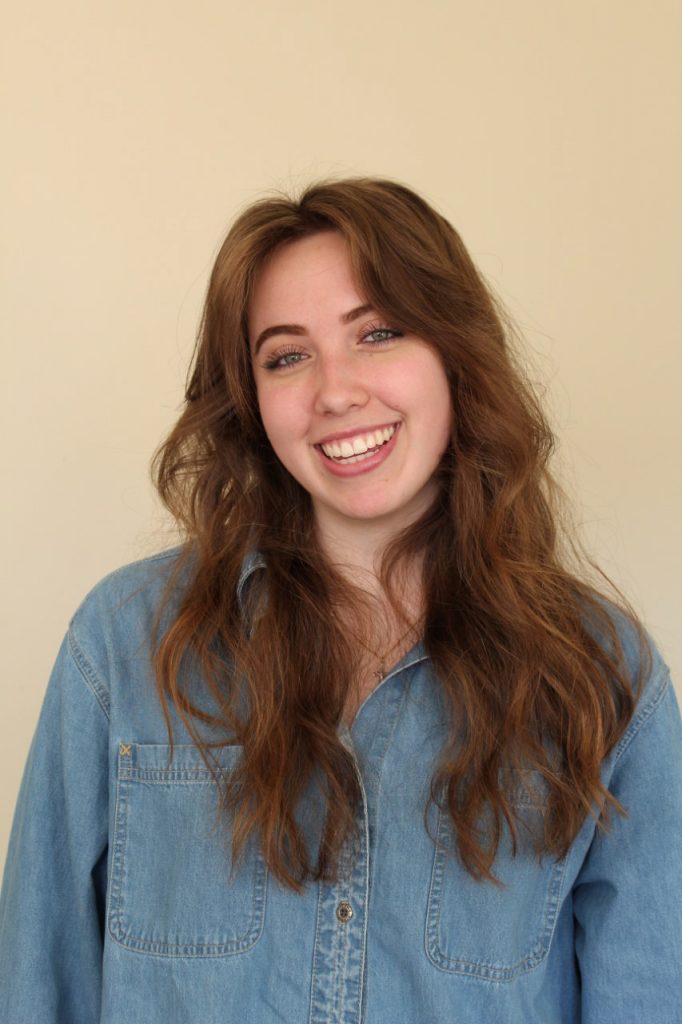Humans of Liberty: Engaging other people on disability

Audrey Gartner loves many things — old cars, The Rolling Stones and Jan de Bont’s 1996 film “Twister.” Although Gartner relaxes during the interview, it takes an hour before she says she danced for 15 years.
“Sorry, some of my best friends here at school just found out that I was a dancer, and they are always like ‘Why didn’t you tell me?’” she said.
She laughed as she explained the exclusion was not intentional, but her focus was not on herself but on her brother Benjamin.
Of all the things she loves, her 19-year-old brother Benjamin sits near the top of the list. While he is Benjamin to the rest of the world, to Gartner and her family, he is “Benji,” “Lil’ Man” and sometimes “Scooby Doo.” He enjoys Legos, golf and Mario Kart.
The second oldest of four children, Gartner is as protective of Benjamin as any older sister ought to be. She advises him on clothes he should wear, takes him on trips he would enjoy and even jokes lightheartedly about him being “gangly.”
At first glance, Benjamin is simply another tall, shy boy who prefers computers over being in a crowd, but there is something that sets Benjamin apart. Benji has fragile X syndrome.

Fragile X syndrome is a genetic disorder that results in an impairment of cognitive ability and difficulty learning, caused by a genetic mutation in the FMR1 gene, which is responsible for other gene production. People with fragile X syndrome share similar behaviors to those with autism, but the physical symptoms of fragile X are different. Typically, more men have fragile X. They often have longer faces, bigger ears and a skinnier frame. Benji’s spine is curved and his hips sit at different heights.
Gartner explained that while Benji is not any less able than those without fragile X, his ability simply looks different on a smaller scale. He was diagnosed at 5 years old. Although he is 19 years old, Gartner explained that cognitively Benji’s mind is similar to a 13-year-old.
Benji going through puberty has changed his relationship with Gartner since mentally, he is experiencing the same desire for independence that every teenager experiences.
Benji is not allowed to drive because of the difficulty he has with paying attention for long times. This can be hard on Benji because he wants to do the things his peers are doing. Truthfully, Gartner has never had any expectations for how Benji should or should not be because she has loved every version of his normal.
“Growing up with Benjamin was kind of normal because I wasn’t used to anything else,” she said. “So, I was never like, ‘Oh, my brother is disabled,’ like I wouldn’t constantly think about that. It was normal because I was growing up in that, and I had already accepted him for who he was.”
She smiled as she explained how he leans more on the reserved side around people outside of the family but will light up when she takes him on a trip or when his family can spend time with him alone, and he can simply be Benji. He is kind and brilliant when it comes to anything computer based, and he is incredibly curious about the world.
Gartner always made her way back to how she is so proud to know her “Lil’ Man.” Gartner wants Benji to be understood.
Gartner is double majoring in criminal psychology and industrial and organizational psychology and minoring in sociology. She hoped to become involved with Homeland Security Investigations to fight human trafficking. So much of who Gartner hopes to be is because of the way her parents raised her to be emotionally perceptive and empathetic.
Gartner touched on her experiences in a military family, going to a home school co-op because of frequent moving, and how faithfully attending church has impacted her perspective on people and the empathy she feels towards not only her brother but people in general. From the ages of 14 to 18, she worked as a physical therapist’s assistant at a horse farm for children with disabilities. Gartner will always have a heart for children with disabilities but being a physical therapist and touching their lives that way is no longer her dream.
Gartner explicitly touched on the hurtful misconceptions that Benji and others who have fragile X, autism and other developmental disabilities face because other people assume what they are or are not capable of without even asking.
“It doesn’t bother me at all to talk about it,” she said. “In fact, I enjoy talking about it. I am proud to be his sister. I am proud that I have a brother who is able to do the things he can despite his disability.”
When asked about how people outside of disability culture should go about asking questions that seek to inform and educate, Gartner emphasized that each person is different. There is no correct way to start a conversation about someone’s experience with their disability but start with gauging the person’s comfort level or desire to discuss their disability. She says to never simply assume that somebody does not wish to share the unique experience they have because of their part in disability culture.
While being Benjamin’s sister is a hat she wears proudly, Gartner remains more than that in the same way Benjamin is more than simply someone with a disability. They are both far more than one of their titles. They are both people. They are both able.
Vires is a feature reporter. Follow her on Twitter
